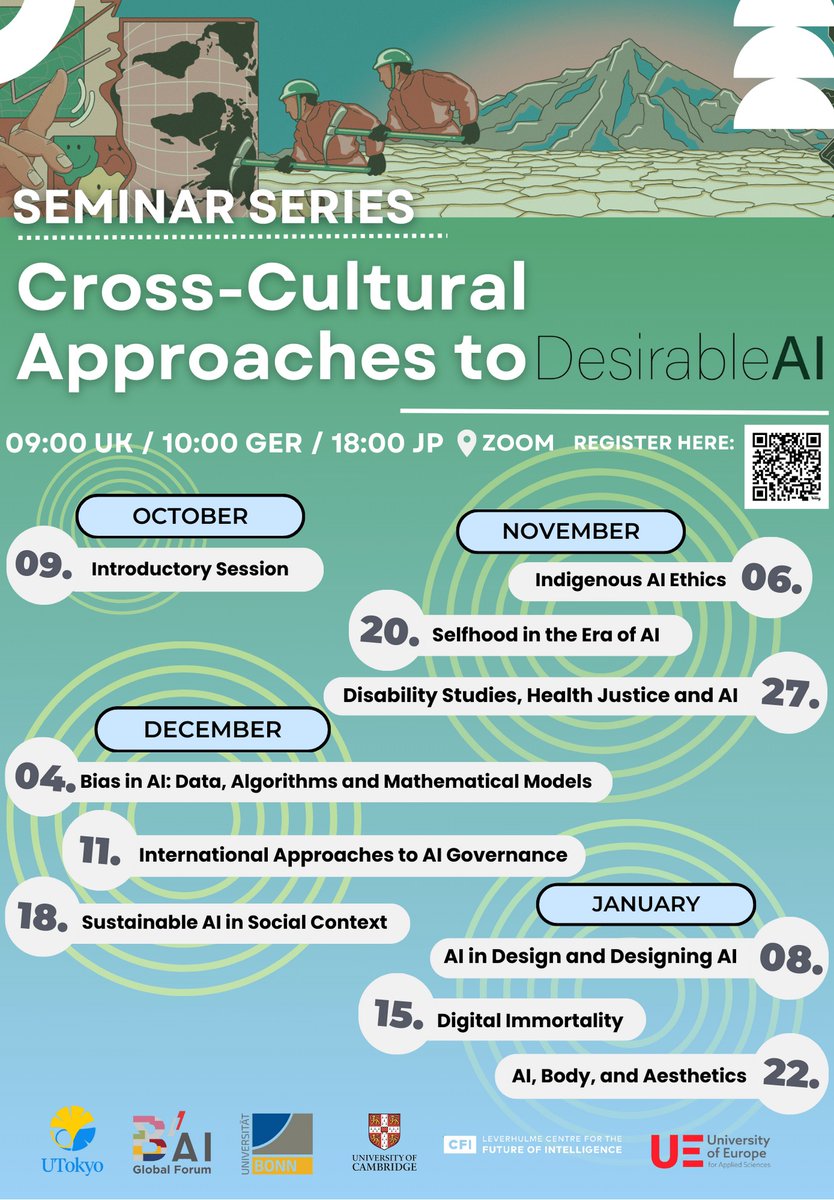イベント&アクティビティ
臨時閉所のお知らせ
ドイツ日本研究所は日本の厚生労働省の勧告に従い、コロナウィルス拡散を防ぐ措置として、当面のあいだ公開イベント、並びに図書室の一般閲覧を見合わせていただきます。
どうぞ宜しくご理解のほど、お願い申し上げます。
The Last Cowboys of Aso? Problems of Grassland Management in Contemporary Commons – 延期 –
新型コロナウイルスの感染拡大を防ぐため、2月27日に予定している下記イベントを延期させていただくこととなりました。
ご迷惑をおかけいたしますが、ご理解ならびにご了承のほど、何卒よろしくお願い申し上げます。
The transformation of the Japanese agricultural sector and the development of rural regions in the course of extensive infrastructure measures during the economic boom led to changes in many areas of rural life. Not only the often mentioned out-migration of younger generations but also the changing economic structures and the conditions for a livelihood in rural settlements were subjected to fundamental change. Among others, this also affected common work and the management of commons (common-pool resources) in the settlements, which had been embedded as a complex local system of cycles for a livelihood fitting the local environment.
By examining the grassland management of Aso (Kumamoto Pref.), I will first outline the natural conditions and then proceed to show how this transformation took place in the livestock farming sector and what problems the local population involved is currently exposed to. The lecture closes with an outlook on possible solutions, which I am currently exploring during a three-year field stay on behalf of the Japanese Ministry of Environment researching “Regionally cycling and symbiotic area” (地域循環共生圏) in order to initiate a discussion within this working group about other possible forms of sustainable development in rural Japan.
Speaker:
Johannes Wilhelm, Kumamoto University (Kumamoto)
Learning to be funny: Training and social relationships in Rakugo ー 延期 ー
新型コロナウイルスの感染拡大を防ぐため、2月27日に予定している下記イベントを延期させていただくこととなりました。
ご迷惑をおかけいたしますが、ご理解ならびにご了承のほど、何卒よろしくお願い申し上げます。
Kabuki actors learn their skills from their fathers. Ikebana students pay their master for lessons. In contrast, artistic lineage in rakugo is not hereditary, and performers do not acquire their stories and acting skills in acting schools or from their fathers. Newcomers to the rakugo profession start their apprenticeship with a shishō, a master, without paying any compensation. For the rest of both of their lives the shishō is responsible for his deshi’s (disciple) education and accountable for his off-stage behaviour. In return, the shishō expects his deshi’s unquestioning loyalty, obedience and subordination.
The presentation provides a perspective on access to knowledge, knowledge acquisition, learning processes and structures inside Tokyo’s yose theatres, as well as social relations among the stakeholders of the rakugo world. Sarah Stark’s research is based on an analysis of printed interviews, autobiographies as well as one-on-one interviews with Tokyo rakugoka.
Speaker:
Sarah Stark, Ghent University
デジタル時代のアクティブシニア – ディジタル化は高齢者の社会参加をサポートできるか ー 延期 ー
新型コロナウイルスの感染拡大を防ぐため、2月27日に予定している下記イベントを延期させていただくこととなりました。
ご迷惑をおかけいたしますが、ご理解ならびにご了承のほど、何卒よろしくお願い申し上げます。
日本とドイツ両国において年々高齢化率が上昇傾向にあり、その支援策について様々な議論がなされています。上昇している高齢者の数に伴う社会要望にも拘らず、彼らの社会参画とソーシャル・インクルジョンには様々なハードルがあります。核家族化や独り暮らし高齢者数の増加、都市環境においてコミュニティー参加者の減少傾向などがその例に挙げられます。コミュニティー参加並びにソーシャル・インクルジョンはアクティブ・エイジングにおいて非常に重要な存在でしょう。コミュニティー活動への高齢者の積極的な参加を促進することは、高齢者自身のみならず、コミュニティーそして社会において非常に良い効果が期待できます。このような現状の中、デジタル化とインターネットなどへのアクセスビリティーは高齢者にとって社会との接点を持てる機会を与えると思われます。ですが、このようなメリットを高齢者に十分に受け取ってもらうためには、革新的技術が社会において普及し、高齢者が積極的にそれらを利用することが求められます。そのために、高齢者のデジタル・リテラシー向上支援策は非常に重要かつ必要な政策になってきています。このような背景のもと、本シンポジウムは情報化社会においてアクティブ・エイジングが持っているハードルやポテンシャルを議論することにその目的を置いています。特に、日本やドイツのようにすでに高齢化が進んでいる国で、情報通信技術が、高齢者の社会参加において情報通信技術の恩恵を確実に受けられることに焦点をあてていきます
使用言語:日本語・ドイツ語 同時通訳予定
DIJ Senior Research Fellow awarded prestigious dissertation prize
Harald Kümmerle, senior research fellow at the DIJ since January of this year, has been selected as the recipient of the Johannes Zilkens Dissertation Prize 2020. Every year, the German Academic Scholarship Foundation (Studienstiftung des deutschen Volkes) awards this prize for an outstanding dissertation from the humanities and social sciences. It is endowed with 5,000 euros.
Kümmerle has defended his dissertation on the “Institutionalization of mathematics as a science in Meiji- and Taishō-era Japan” at Martin Luther University Halle-Wittenberg in January 2019. According to the interdisciplinary jury, it “impressively bridges mathematics, Japanese Studies, and social sciences”. The work gives “important impulses for the advancement of Japanese Studies, and extending beyond this, for the understanding of the development of sites of science and the organization of knowledge transfer”.
Why Is It So Difficult to Buy a Ticket for the Musical?
Adaptive Innovation in Japanese Musical Theater from the 1960s to the Present
This presentation will offer an overview of Japanese popular musical theater focusing on its systematic and strategic adaptation for the growing and changing needs of its diversifying audience groups. In the past decades, Japanese popular musical theater has drastically transformed, expanding its presence in the domestic entertainment industry by ticket distribution adaptive to new communication systems for better accessibility and consumability.
Speaker:
Rina Tanaka, Meiji University
Money, parenting and happiness: A comparative and historical perspective
Money and parenting are two key factors that can bring considerable joy or misery to our daily lives. Empirical studies have shown that while money is generally associated with greater happiness, having small kids can actually be a source of unhappiness, especially for women. In this session, two experts – a sociologist and an economist – explore the intricate relationship between money, parenting and happiness, from a comparative and historical perspective.
Speakers:
Hiroshi Ono, Hitotsubashi University Business School
Matthias Doepke, Northwestern University
DIJ KAS Roundtable
US-Japan Relations under Donald Trump and Shinzo Abe
US-Japan relations form a core element in Asian regional security and a central pillar of the international trade regime. The quality of the relationship has always been shaped by the personalities representing the two countries. Shinzo Abe, Japan’s now longest-serving prime minister, has been keen to establish good personal ties with Donald Trump, whose “America First” policy implied a major shift in the US approach to regional and global issues. This roundtable will discuss the changes that US-Japan relations underwent since the beginning of Trump’s presidency and analyze the regional and global implications.
Keynote:
Glen S. Fukushima, Center of American Progress
Comments:
Koichi Nakano, Sophia University
Tilman Schmit-Neuerburg, German Federal Foreign Office








 Open Access
Open Access
